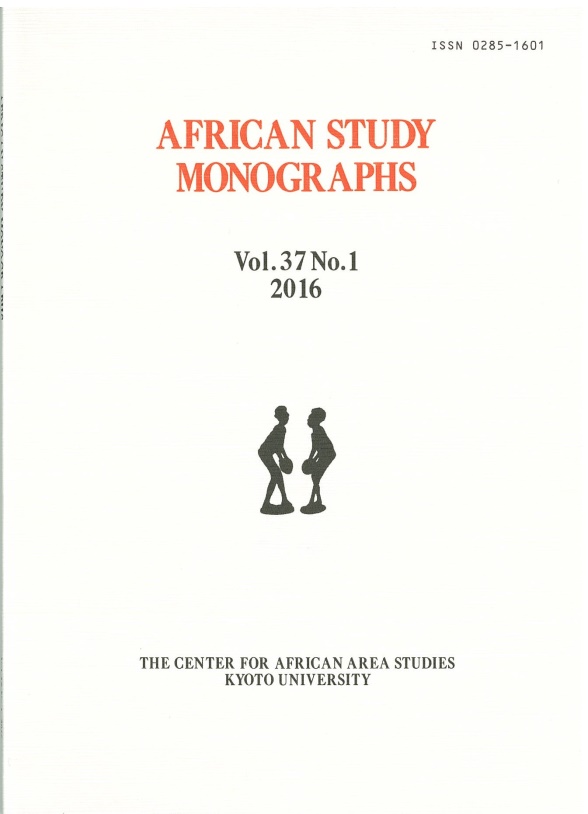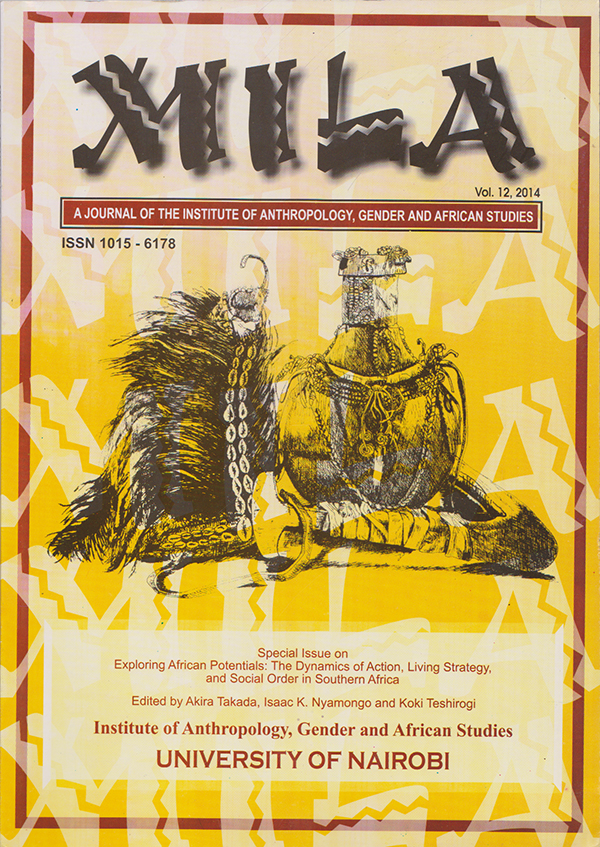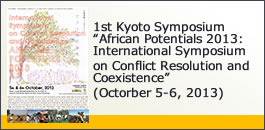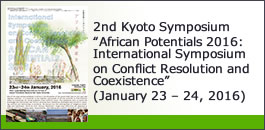[7th Meeting of Cluster on Southern Africa / 20th Public Workshop] “Long-term field study of ring-tailed lemurs in southern Madagascar” (Co-organized by the 206th Regular Seminar of the Center for African Area Studies) (November 20, 2014)
Date: November 20, 2014. 15:00 – 17:00
Venue: Middle-sized seminar room, 3F Inamori Center, Kyoto University
Program
Title: Long-term field study of ring-tailed lemurs in southern Madagascar
Presenter: Shinichiro Ichino (Kyoto University)
Abstract
Madagascar is a large island which is 1.6 times larger than the whole area of Japan and characterized by biodiversity with high endemism. In spite of that, it is estimated that Madagascar has lost more than 90% of its original forest. At Berenty Reserve in southern Madagascar, a field study of a diurnal prosimian, ring-tailed lemurs (Lemur catta), has been conducted since 1989. In this presentation, I introduce results of the long-term study; for example, longevity, life history traits and population dynamics of this endangered species. And I also discuss how long-term field study can contribute to forest ecosystem conservation in Madagascar.
[8th Meeting of Cluster on Southern Africa] “Land and Agrarian Reform in Zimbabwe: Social and Structural Implications” Sam Moyo o (Executive Director of African Institute for Agrarian Studies, Zimbabwe) (Co- organized by the 35th Kyoto University African Studies Seminar (KUASS)) (March 7, 2015)
Date: March 7, 2015. 16:00 – 18:00,
Venue: Small-sized seminar room II, 3F Inamori Center, Kawabata Campus, Kyoto University
Program
Title: Land and Agrarian Reform in Zimbabwe: Social and Structural Implications
Abstract
>> Abstract (PDF)[6th Meeting of Cluster on Southern Africa / 17th Public Workshop] “Tobacco and Health: An Overview of Tobacco Control in Zambia” Richard Zulu(University of Zambia) (January 10, 2013)
Date: January 10, 2014, 15:00 – 17:00
Venue: #318 seminar room, Inamori Center 3F
Program
15:00 – 17:00 Richard Zulu (University of Zambia)
“Tobacco and Health: An Overview of Tobacco Control in Zambia”
Abstract
Tobacco is a major public health concern worldwide and a major leading cause of preventable deaths. Methods used are review of survey results from the 2002, 2007 and 2011 Global Youth Tobacco Survey (GYTS) and a desk review. The GYTS included school grades 7, 8 and 9. The never smokers likely to initiate smoking in the next year were 22.6%. About 19.1% of the students had ever smoked cigarettes. About 22% of students reported that one or more of their parents smoke. Among some of the students who were current smokers some reported wanting a cigarette first thing in the morning, an indicator of nicotine addiction. Some students reported being offered free cigarettes by a tobacco company representative. Zambia has made tobacco use prevention a primary health issue as evidenced by the ratification of the World Health Organization (WHO) Framework Convention on Tobacco Control (FCTC) on 28th May 2008. There is need to have a comprehensive tobacco control law which is FCTC compliant. Findings presented in this paper show that there is need for interventions towards tobacco control amongst young people who represent the ages of tobacco use initiation.
[4th Meeting of Research Cluster on Southern Africa / 10th Public Workshop] “Creativity of the African Farmers: Living strategy of Angolan immigrants living in Western Province, Zambia” Rumiko Murao (Tokyo University of Foreign Studies) (January 24, 2013)
Date: January 24, 2013. 15:00-17:00
Venue: Large-sized seminar room, 3F Inamori Center, Kawabata Campus, Kyoto University
Program
Title: Creativity of the African Farmers: Living strategy of Angolan immigrants living in Western Province, Zambia
Presenter: Rumiko Murao (Tokyo University of Foreign Studies)
Abstract
Angolan immigrants in farm village of Western Province, Zambia are voluntary refugees who have left their country because of a civil war. After their immigrations from Angola, their lives, especially land uses, are regulated in the context of political and economic change at national and global level. In this presentation, I examine characteristics to be seen in the African farmers under the political and economic change by focusing on creativities that can be seen in the living strategies of the Angolan immigrants.


 Exploring African Potentials, Mila Special Issue
Exploring African Potentials, Mila Special Issue
